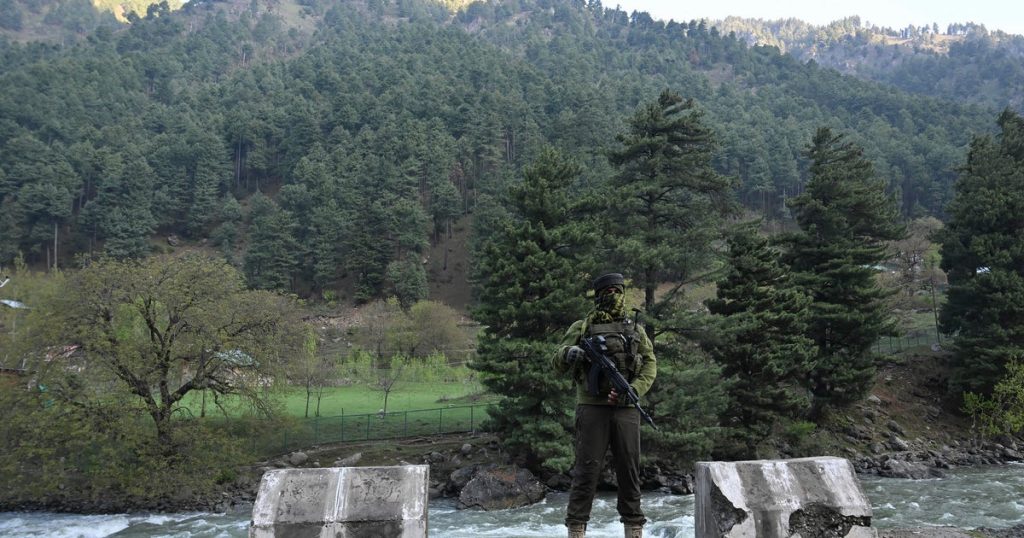Tensions escalated between India and Pakistan following a devastating attack on tourists in Kashmir that left 26 dead, predominantly Indian nationals. As both nations engaged in retaliatory measures and military actions, the risk of further conflict has increased markedly. The situation has drawn international attention, with calls for urgent dialogue and mediation to prevent an outbreak of violence.
| Article Subheadings |
|---|
| 1) Overview of the Attack on Tourists |
| 2) Military Escalation in Kashmir |
| 3) Government Responses and Retaliation |
| 4) Calls for Mediation and International Response |
| 5) The Impact of Rising Tensions on Civilians |
Overview of the Attack on Tourists
On a tragic day last week, tourists visiting the picturesque region of Kashmir fell victim to a brutal attack, resulting in the deaths of 26 individuals, mainly from India. This incident has been labeled as a “terror attack” by Indian officials, who accuse Pakistan of backing the assailants. The attack was reportedly executed by a previously unknown militant group, identifying itself as the Kashmir Resistance. This event marks one of the bloodiest assaults on civilians in the region in many years and has reignited tensions between the two nuclear-armed neighbors, both of whom claim Kashmir in its entirety.
Military Escalation in Kashmir
In the wake of the deadly attack, military activities have intensified along the Line of Control (LoC), the de facto border separating Indian-administered and Pakistan-administered Kashmir. Reports indicate that for two consecutive nights, Indian forces faced fire from multiple Pakistani military posts. While the Indian military confirmed that soldiers engaged in return fire, they noted there were no reported casualties on either side at that time. This ongoing military confrontation raises concerns about further escalation and the potential for a larger conflict.
Government Responses and Retaliation
Following the deadly incident, the Indian government reacted decisively by suspending a key water-sharing treaty and closing the primary land border crossing with Pakistan. Additionally, India revoked visas already issued to Pakistani nationals effective from the following day. In retaliation, Pakistan annulled visas for Indians, closed its airspace to Indian airlines, and halted trade with India. The escalating tit-for-tat responses have led to heightened tensions between the two countries, compelling nationals from both sides to return home through the Wagah border crossing.
Calls for Mediation and International Response
As both nations engaged in military posturing and rhetoric, international observers have commenced calls for mediation. Iran extended its readiness to facilitate dialogue, expressing hope for a reduction in tensions. U.S. officials, including President Trump, also commented on the situation, urging both sides to resolve their differences peacefully. The U.S. has historically played a role in mediating conflicts between India and Pakistan, particularly during moments of elevated hostilities.
The Impact of Rising Tensions on Civilians
The ongoing military engagements and political rhetoric are not without dire consequences for local civilians. Reports have emerged of the Indian military intensifying crackdowns in the Kashmir Valley, detaining and questioning thousands of individuals suspected of involvement in anti-India activities. Additionally, the military has resorted to demolishing properties linked to alleged militants, resulting in collateral damage to neighboring homes. Community members living in areas affected by these military actions express fears of escalating reprisals and rising tensions that threaten their safety and livelihoods.
| No. | Key Points |
|---|---|
| 1 | 26 individuals, mainly Indian tourists, were killed in a terrorist attack in Kashmir. |
| 2 | Military tensions have escalated between Indian and Pakistani forces along the LOC. |
| 3 | India suspended a crucial water-sharing treaty and revoked Pakistani visas. |
| 4 | Pakistan responded by canceling Indian visas and closing its airspace to Indian planes. |
| 5 | There are fears of further civilian casualties due to military actions and retaliatory measures. |
Summary
The violent attack on tourists in Kashmir has rekindled long-standing tensions between India and Pakistan, causing substantial political and military repercussions. Both governments have responded with strong rhetoric and military action, increasing fears of a broader conflict. International calls for mediation highlight the urgent need for dialogue to alleviate rising hostility and protect civilians caught in the crossfire.
Frequently Asked Questions
Question: What caused the recent escalation between India and Pakistan?
The escalation was triggered by a deadly attack on Indian tourists in Kashmir, leading to accusations and retaliatory military actions by both countries.
Question: What actions did India take following the attack?
India suspended a crucial water-sharing treaty with Pakistan and revoked visas for Pakistani nationals as part of its response.
Question: How is the international community responding to the tensions?
Countries like Iran and the United States have called for mediation and peaceful dialogue between India and Pakistan to resolve the crisis.


